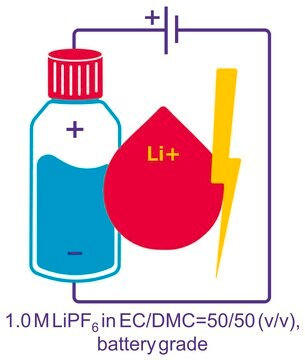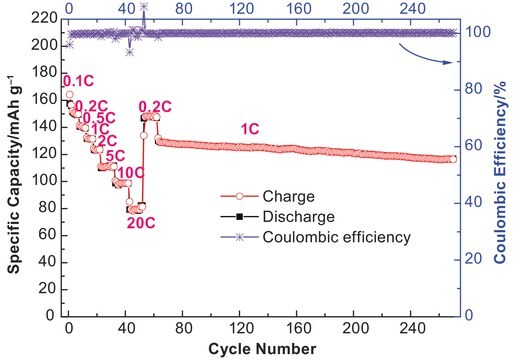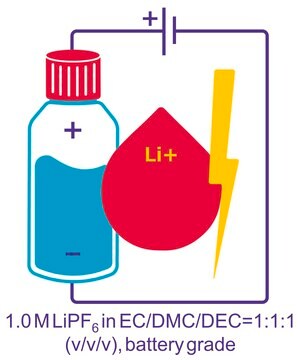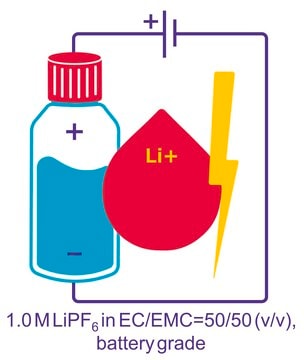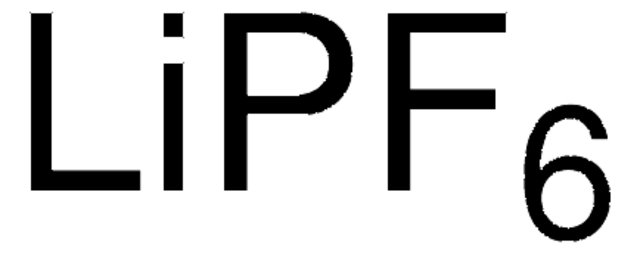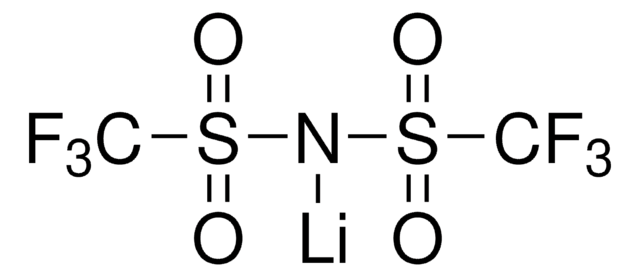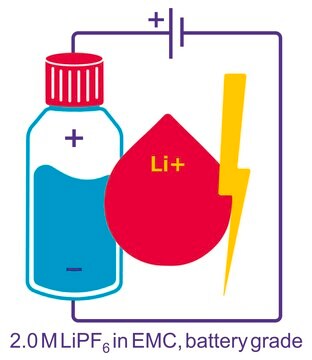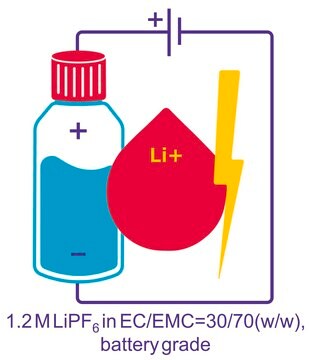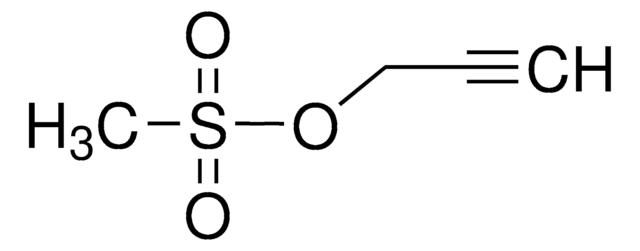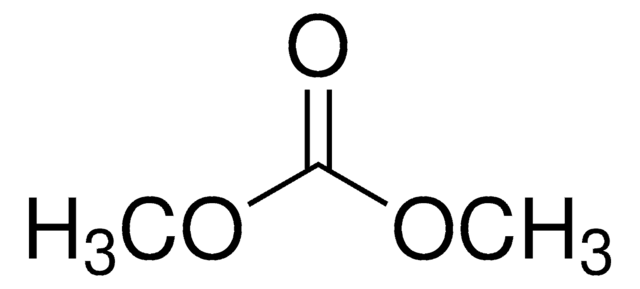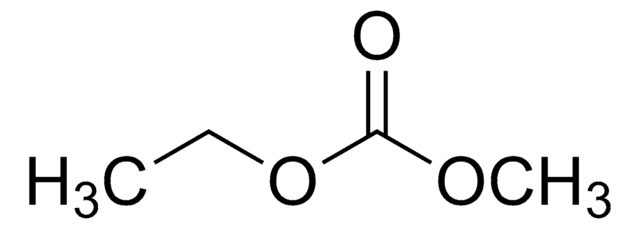809357
Lithium hexafluorophosphate solution
in ethylene carbonate and dimethyl carbonate, 2.0 M LiPF6 in EC/DMC=50/50(v/v), battery grade
Synonyme(s) :
2 M LiPF6 [EC/DMC=50/50(v/v)]
About This Item
Produits recommandés
Qualité
battery grade
Niveau de qualité
Forme
liquid
Caractéristiques du produit alternatif plus écologique
Design for Energy Efficiency
Learn more about the Principles of Green Chemistry.
sustainability
Greener Alternative Product
Concentration
(2.0 M LiPF6 in EC/DMC)
Impuretés
≤15 ppm H2O
≤50 ppm HF
Densité
1.3634 g/mL
Traces d'anions
chloride (Cl-): ≤1 ppm
sulfate (SO42-): ≤2 ppm
Traces de cations
Ca: ≤1 ppm
Fe: ≤1 ppm
K: ≤1 ppm
Na: ≤1 ppm
Pb: ≤1 ppm
Application(s)
battery manufacturing
Autre catégorie plus écologique
Chaîne SMILES
F[P-](F)(F)(F)(F)F.[Li+]
InChI
1S/F6P.Li/c1-7(2,3,4,5)6;/q-1;+1
Clé InChI
AXPLOJNSKRXQPA-UHFFFAOYSA-N
Vous recherchez des produits similaires ? Visite Guide de comparaison des produits
Description générale
Application
Notes préparatoires
- Do not use any glass equipment.
- Please handle under inert and moisture free environment.
Informations légales
Produit(s) apparenté(s)
Mention d'avertissement
Danger
Mentions de danger
Conseils de prudence
Classification des risques
Acute Tox. 4 Oral - Eye Irrit. 2 - Flam. Liq. 3 - Skin Irrit. 2 - STOT RE 1 Inhalation - STOT RE 2 Oral
Organes cibles
Bone,Teeth, Kidney
Code de la classe de stockage
3 - Flammable liquids
Classe de danger pour l'eau (WGK)
WGK 2
Point d'éclair (°F)
77.0 °F
Point d'éclair (°C)
25 °C
Faites votre choix parmi les versions les plus récentes :
Certificats d'analyse (COA)
Vous ne trouvez pas la bonne version ?
Si vous avez besoin d'une version particulière, vous pouvez rechercher un certificat spécifique par le numéro de lot.
Déjà en possession de ce produit ?
Retrouvez la documentation relative aux produits que vous avez récemment achetés dans la Bibliothèque de documents.
Les clients ont également consulté
Articles
Dr. Sun reviews the recent advances in solid-state rechargeable batteries and cover the fundamentals of solid electrolytes in solid-state batteries, the theory of ion conduction, and the structures and electrochemical processes of solid-state Li batteries.
Due to the adverse impact of the continued use of fossil fuels on the earth’s environment and climate, researchers have been asked to develop new approaches for producing power using renewable sources like wind and solar energy
Here, we present a short review of ionic liquid electrolytes used in state-of-the-art rechargeable batteries including high performance and low-cost aluminum batteries, non-flammable Li-based batteries, and high-cycling and stable dual-graphite batteries. We also outline the key issues explored so as to identify the future direction of IL development.
Notre équipe de scientifiques dispose d'une expérience dans tous les secteurs de la recherche, notamment en sciences de la vie, science des matériaux, synthèse chimique, chromatographie, analyse et dans de nombreux autres domaines..
Contacter notre Service technique